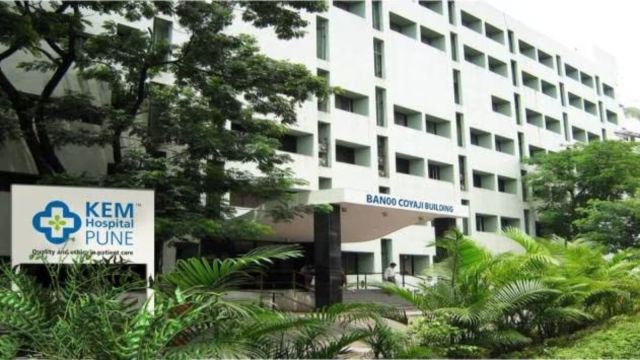Click here to join Express Pune WhatsApp channel and get a curated list of our stories
KEM hospital’s ‘Big Ears’ dept to host graduation programme on Dec 15
Cochlear implant programme helps integrate 178 children into mainstream
 The Big Ears department at KEM Hospital will host its annual graduation programme for students who have undergone cochlear implant followed by rehabilitation programme. (File Photo)
The Big Ears department at KEM Hospital will host its annual graduation programme for students who have undergone cochlear implant followed by rehabilitation programme. (File Photo)Sneha Mothe Kadam admits she and her husband would often suffer guilt pangs and wonder why they did not decide on a cochlear implant surgery for their son at an early stage. “He was detected with severe hearing loss at the age of six months. We were extremely worried and it took a while before we could give the go-ahead for the surgery. But now with the implant, my three-year-old Yatharth responds to people calling his name and recently danced to music at my brother-in-law’s wedding,” says Sneha.
“We just wish a decision had been taken earlier, as I now understand that the most important period of speech and language development is during the first three years of life,” she adds, waiting in the OPD of Big Ears department of KEM Hospital, Pune, which is set to host its annual graduation programme on December 15.
A graduation programme generally is for those who have passed their academic tests. But this graduation programme is special as it reflects a much better life ahead for the children and salutes the commitment of the parents whose perseverance has given a new lease of life to their children.
The Big Ears department at KEM Hospital will host its annual graduation programme for students who have undergone cochlear implant followed by rehabilitation programme. About 178 children have completed the programme this year, which also includes listening and speaking. Till date, 641 children have benefited from this pioneering initiative by KEM Hospital, started in 2006.
“The graduation ceremony will include students who have developed near-normal speech and language skills enabling him / her to become a part of mainstream society. They no longer require continuous assistance from the hospital team,” Dr Neelam Vaid, HoD, Big Ears department, said.
Dr Vaid, who was instrumental in setting up the Big Ears clinic in 2006, said the unique initiative focuses on early detection, diagnosis and therapy of hearing loss. Big Ears offers services needed for the hearing challenged; from a variety of tests that detect hearing loss to hearing aids, speech therapy, counselling and cochlear implants for the totally deaf.
According to WHO estimates, 6.3 per cent Indians (63 million people) have significant hearing loss and the prevalence of childhood deafness is around 2 per cent. Prevalence of congenital hearing loss is the most common disorder at birth and, according to estimates, more than 30,000 children are born every year with hearing impairment, Dr Vaid said, adding they have also embarked on a new project to diagnose hearing loss in children at the age of three months.
Meanwhile, she also pointed out that post-implant the children undergo a rehabilitation programme under the guidance of a team consisting of audiologists, therapists, speech and language pathologists and surgeons who ensure the family receives appropriate advice and care. “It does not end there, 98 per cent of our patients come from families who cannot afford this expensive technology. Over the past 18 years, we have helped many children and their families get financial aid and acquire this technology. It has not been an easy task and the commitment of the social workers of KEM Hospital is to be lauded,” she added.
The team at Big Ears includes medical social worker Anuradha Chavan Mandhare, ENT surgeons Dr Ajay Kothadiya and Dr Nikhil Gokhale, audiologists Rajesh Nikam, Ashutosh Kumar Dubey and Anirudhha Katkar, auditory verbal therapists Kalyani Salve and Priyanka Endal, special educator Shweta Jahagirdar, speech language therapists Krutika Gajane, Palal Julaniya, Rameshwari Sarje and Ciya Thomas.
Dr Madhur Rao, Senior Deputy Medical Administrator, KEM Hospital, said “this is a joyous occasion for all of us as the children undergoing cochlear implant and rehabilitation programme are able to enjoy a much better quality of life”. Shirin Wadia, general administrator at KEM Hospital, said the pioneering integrated approach has helped many children from across all sections of society. “There is no better joy than seeing children get a near-normal life,” Wadia said.
Click here to join Express Pune WhatsApp channel and get a curated list of our stories








